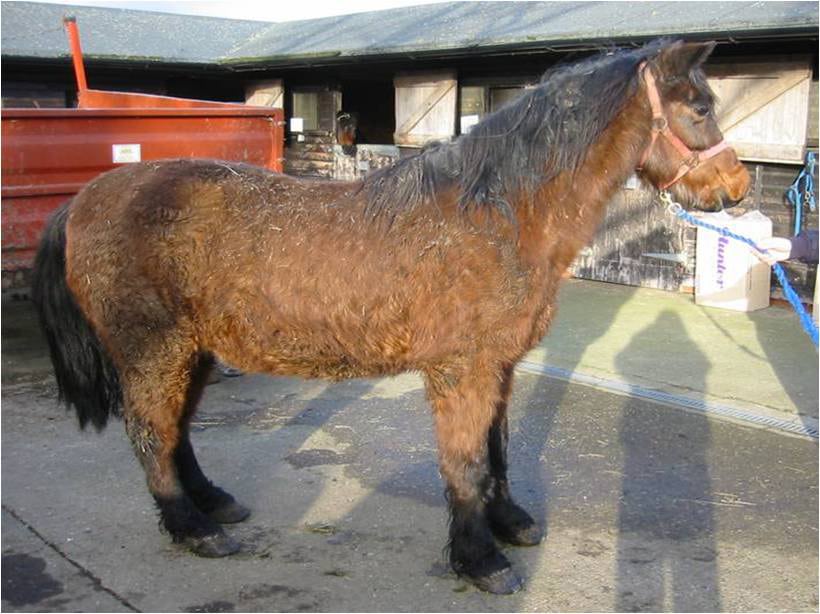News & Research, Veteran
Call to help improve the understanding of equine Cushings’ disease

The Royal Veterinary College (RVC), in partnership with CVS Group plc, has launched a new study to explore the effects of Pituitary Pars Intermedia Dysfunction (PPID), aka Equine Cushing’s disease, in adult and older horses and ponies in the UK. The study aims to improve understanding of the impact the disease has on the quality of life, of horses and ponies. The goal is to improve monitoring and decision-making regarding treatment of the disease.
PPID is a common hormone disease, which affects approximately 25% of horses and ponies over the age of 15 years. It has several associated clinical symptoms that can impact quality of life, including:
- Laminitis
- Weight loss
- Lethargy
Because these symptoms are often associated with ageing, many owners do not consider them concerning enough to discuss with their vet. Additionally there is an increase in physical care and costs, once PPID has been diagnosed.
The RVC’s study is hoping to develop a tool, to assess objectively, the impact of the condition on an individual horse’s quality of life. This will help support decision-making related to treatment and/or euthanasia options for horses and ponies diagnosed with PPID.
The RVC research team, led by Aline Bouquet, PhD Candidate and Research Assistant, and supported by Professor Nicola Menzies-Gow, Professor in Equine Medicine, and Professor Christine Nicol, Professor of Animal Welfare, is asking horse and pony owners to complete an online survey, which will provide the initial data required to develop the tool.
The tool will then be used in a study involving more than 100 horses recently diagnosed with PPID and, will follow these horses over a two-year period, observing the impact of the disease and its treatment on their quality of life.
Owners with horses or ponies over the age of 10 with or without PPID, are invited to participate in the survey, which takes less than 15 minutes to complete.
Aline Bouquet, PhD Candidate and Research Assistant in the Assessment of Quality of Life in Equines with PPID, said:
“Results from this project will better our understanding in how this disease and its treatment impact the quality of life of individual horses and ponies, which can hopefully then help vets and owners to assess and monitor the impact, guide management decision-making and thus improve the welfare of affected horses and ponies.”
Owners who wish to participate can sign up for the study at: https://rvc.uk.com/PPID-survey-2023-stage1
